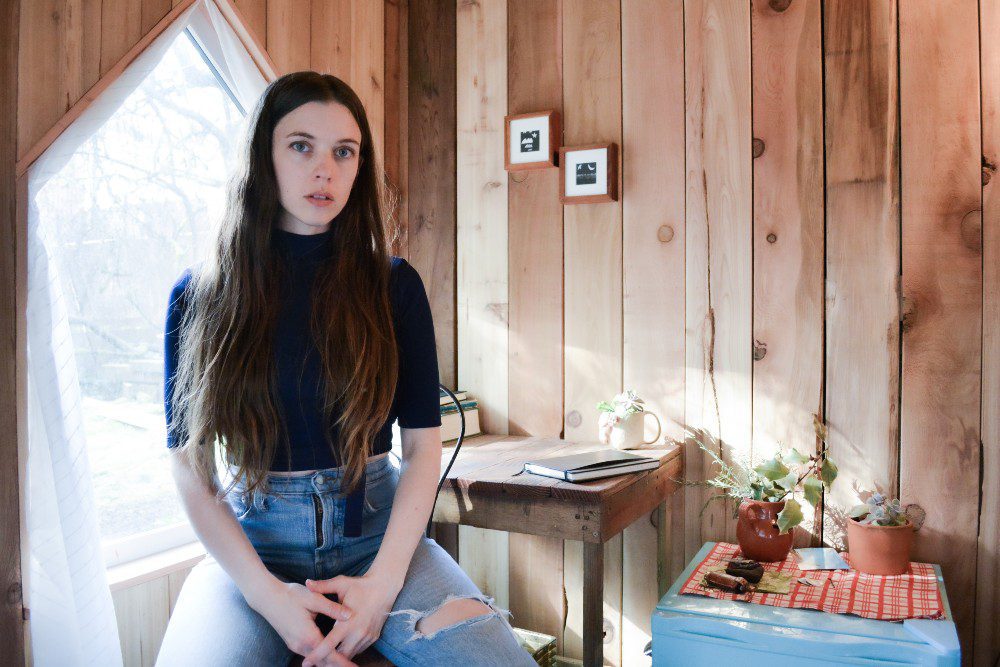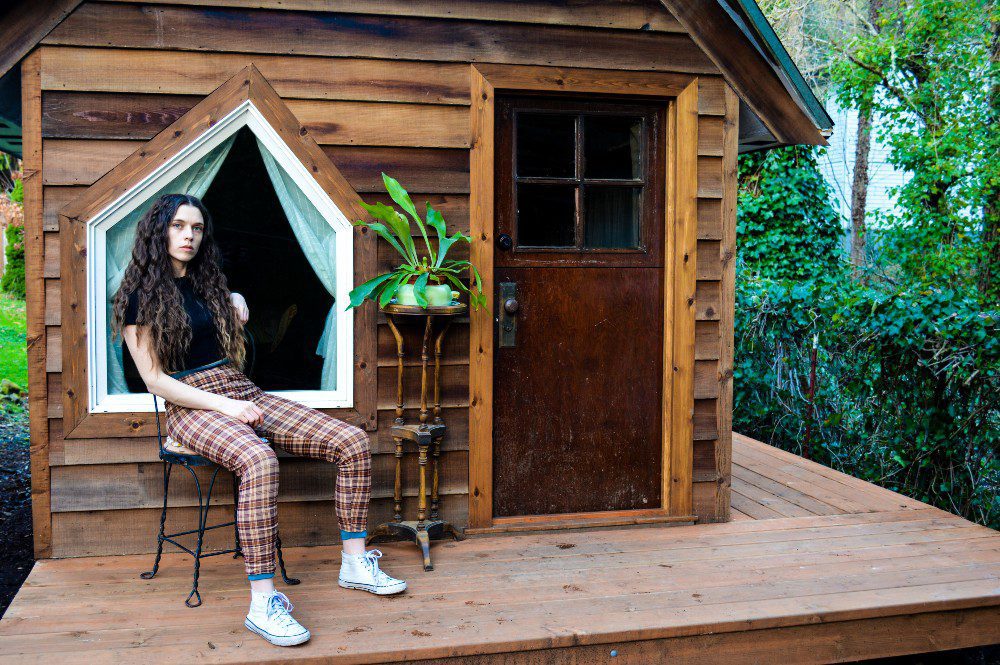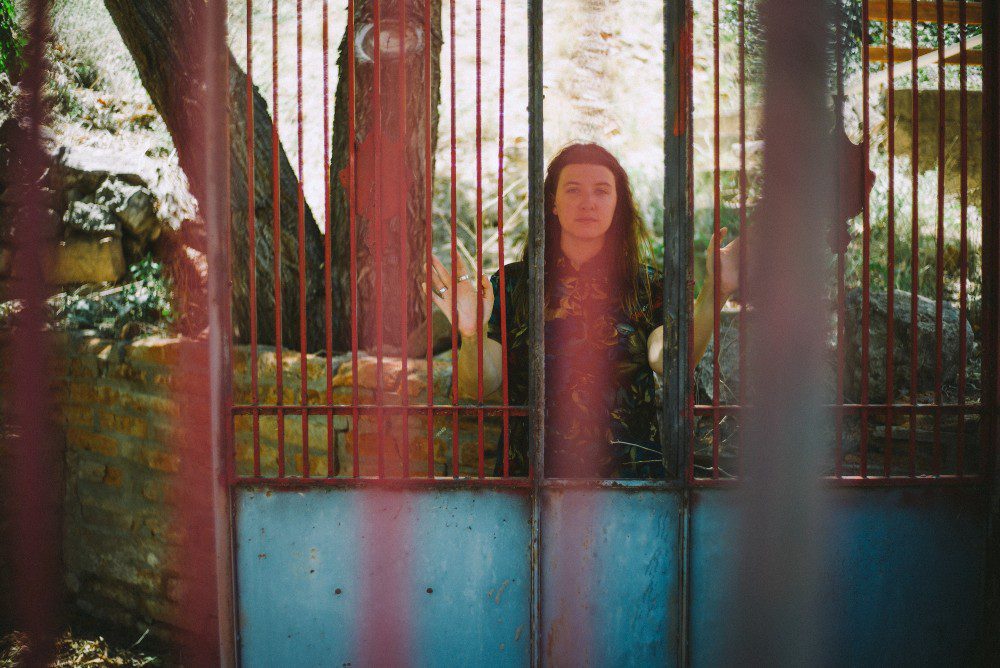

California-born, Chicago-raised Jessie Antonick, a.k.a. Pony Hunt, recorded her newest album VAR! in New Orleans, but inspiration came from light years away. Its title is a reference to the scribbled note of astronomer Edwin Hubble in 1923, upon realizing that what he’d previously identified as nebulae in the Milky Way were, in fact, something else. He’d identified a variable from another galaxy, which would lead him to discover the Andromeda galaxy, expanding our knowledge of the universe.
There is a sense when listening to Pony Hunt of being immersed in a universe of Antonick’s own construction. The many layers of instrumentation, and the intermingling melodies and atmosphere demand attention. In this way, VAR! is meditative and healing, especially when inhabiting an imagined time and place provide respite from our pandemic-affected lives.
“I hope that my music transports people into a feeling or a space,” Antonick confirms. “When I’m writing songs, I feel all-consumed by what I’m doing. The goal is to create space or an environment that wraps around a listener.”
On first single “Stardust,” there’s layers of ‘60s psychedelia and harmonic doo-wop vocals, the raw, steely sound of surfy guitars, and the contained fury of drums that want to become savage but remain firmly leashed. Atop it all, Antonick’s gorgeous, soulful voice teeters on the edge of being haunting in its romantic perfection. Her formative influences in Chicago punk, pop music of the ‘90s (Nine Inch Nails, Wilco) and ‘60s R&B, soul and rock reveal themselves in the layers of sound, and the tools used during recording.
“We used a lot of vintage equipment,” she explains. “The AMPEX 351 [Reel To Reel Tape Recorder] is from the 1950s, I think, and we used a handful of vintage microphones as well in different places on the album. We used ‘60s tube amps for the electric guitar, and there was an older organ in the studio from the ‘60s and ‘70s that we used pretty consistently as well. We also used a Rhodes, for a vibey, dreamy sound. I really love the sound of that electric piano; it’s unique, different, beautiful. I had one song with violin and cello, also.” The violin and cello show up on “Who Are You,” recorded with a friend from New Orleans – strings player and vocalist free feral. It’s a lovely, doomed love story cushioned in a waltzing melody.
VAR! was recorded in home studios, with a number of engineers, Antonick says. “I recorded with a couple of my bandmates, Sam Doores and Duff Thompson. They had a little studio set up in the Holy Cross neighborhood of New Orleans, so we did a lot of recording on their AMPEX 351 reel-to-reel, then I took those base recordings and added to them. I had friends in Colorado do some overdub, I recorded some in my apartment, and we pieced it together over a couple of years.”
Since releasing her debut Heart Creak in 2016, VAR! has been in varying stages of creation. In the intervening period between albums, Antonick moved from her houseboat home in Oakland, California to Louisiana, New Orleans. “When I lived in Oakland, mostly I lived on a sailboat in a marina because a friend offered me a place to stay, which happened to be his houseboat. It was a run-down marina that was also a really fantastic artists’ community, so I was surrounded by musicians and artists of all kinds and the water, of course, that was beautiful. I was working as a sail-maker, so I was sailing a lot and working in the trades, a unique trade. I think all of that conspires to inspire my music,” Antonick says, and that’s certainly true of the fluidity, movement and tidal rhythms on Heart Creak; water, the tides and physical connection to nature underlie the themes of the album. The constant movement of living on the water and the sense of being carried in any direction, at any time, are central to Pony Hunt’s nature.
On VAR!, Antonick explores a different kind of fluidity. “Gender is definitely always coursing through my investigation in life,” she says. “I grew up classified as a tomboy. In pictures of myself as a teenager, I look like a 16-year-old boy. I was lucky enough to grow up in a family where I wasn’t pushed into a gender role; I only felt that in societal and cultural systems. Those questions have gotten more complicated as I’ve gotten older and experienced the world a lot more. Society really wants to push me into being a woman, being female, having sex with a male, all these things women are supposed to have. I’m gender-fluid, or gender-queer, but it’s something where I don’t feel satisfied when I say those things. I haven’t figured that quite out yet.”

Now 36, she says, “I feel like those things weren’t on the table when I was growing up. Later in life after being called ‘she/her’ all this time, I get to be called what I want? I’ve never had that before. I sexually identify as queer, but I remember, when the only things on the table were being a lesbian or bisexual, I cringed. When ‘queer’ landed on the table, I went, ‘I am totally that!’ It gives me breathing room to be what I want to be at any moment.”
Whatever else she may be, she is undisputedly channeling the formative sounds she grew up with. Chicago’s DIY punk scene awoke in her a sense of freedom to challenge ideas of womanhood, work, and identity. “When I was a teenager, I had older siblings who were really into the punk scene in Chicago, so that’s the music I was introduced to and loved being part of. It’s loud, abrasive, energetic and just so good… that was the first music that lit me up,” she remembers.
The undeniable element of roots and country in her music was the result of a very different Chicago band. “I remember listening to Wilco – the local Chicago band that everyone loved when I was growing up, and they were my gateway to more Americana-style music. My influences on VAR! are very much 1960s rock, R&B and soul influenced. The Velvet Underground are huge for me; they’re vibey in all the right ways. Irma Thomas – when I hear her sing, she’s just the Queen of New Orleans soul for a reason.”
Steeped in the culture of a historically musical, artistic city – one that is rich with stories, blood and tears – yet addressing very modern concepts of fluid gender identity speaks to the juxtaposition between vintage and new that Pony Hunt embodies. It’s fitting that the album was the first to be released on Antonick’s new imprint, Wing And Wing, on July 23.
“I’m a co-owner; it’s myself and a woman named Lindsey Baker who runs Wolfie Vibes [PR]. Lindsey is also a wonderful musician [and plays in] Guts Club. We met through the New Orleans music scene, playing some shows together,” Antonick says. “We wanted to shine a light on queer-owned, female business, overlooked musicians. There’s a lot of really amazing queer musicians out there.”
Follow Pony Hunt on Instagram for ongoing updates.


